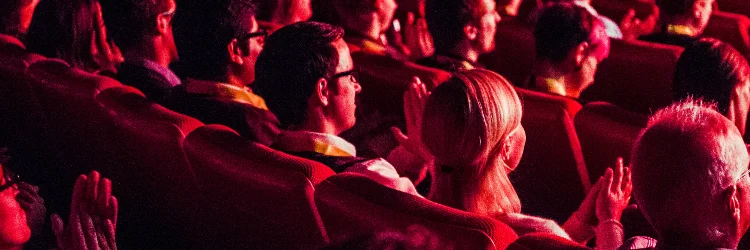The stories behind theatre’s well-known phrases and sayings
Whether you're a newcomer to theatre, or a seasoned stagey pro, there is a certain language to use (or avoid) at the theatre. You know never to wish an actor 'good luck', and you can so much as dare to mutter the M-word in the foyer at your own peril. But why? How did theatre's little language come to be? Here are some of the most used theatre phrases in the West End, and the history behind them.
"Break a leg"
Though we all know you should never wish an actor "good luck", there are many theories behind why we wish performers shattered limbs instead. One of which comes from a stage's 'leg line', a line on the stage beyond which a person could be seen. Once you crossed the line, you were technically a performer and entitled to pay, so wishing someone would "break a leg" would actually be to hope they were paid. Other theories include actor David Garrick being so enthralled by a performance of Richard III that he didn't notice he'd broken his leg, or that actor John Wilkes broke his leg when jumping on stage after assassinating President Abraham Lincoln.
"Get the show on the road"
This probably comes from the idea of a show starting on Broadway or in the West End, and then touring it to various local theatres around the country. The saying is also applied to circuses and fairs, which travel from town to town across the country.
"Never work with children or animals"
This may just seem like an obvious piece of advice, but it can actually be attributed to a single originator: American comedian and actor WC Fields who probably used the phrase in a routine. At a dinner in Fields' honour, Leo Rosten said: "any man who hates dogs and babies can't be all bad". Despite the perception that Fields hated dogs and kids, he regularly enjoyed entertaining children of friends and gave positive replies to kids who expressed an interest in his juggling work.
"Don't say M*cbeth"
One of the theatre's biggest superstitions is that of The Scottish Play, the M-Word: Macbeth. Some believe that during the three witches scene, real spells are cast unless the parts are played by real witches. But there are other reasons as to why people to believe the play is cursed. Supposedly, the actor playing Lady Macbeth died at the premiere of the play when a real dagger was used instead of the intended prop, and the Bard had to step in to finish the performance. However, it could just be an old hazing ritual between actors. Whatever the reason, just don't say it. You have been warned.
"Bravo"
From the Italian word for 'good' or 'skilful', 'bravo' is used to express praise upon a performer. The phrase dates back to around 1761 when 'bravo' meant 'brave'. As an exclamation, it meant 'well done', much like it does when used today.
"Brava"
What you may not know is that you change the ending of the word depending on who you're applauding: 'Bravo' for a singular man; 'brava' for one female; 'brave' for a group of women; and 'bravi' for a group of men or mixed performers. So, the next time you want to impress your fellow audience members, have a few of these up your sleeves. (Or just stick to 'bravo', everyone will understand what you mean.)
A 'showstopper'
When a part of a performance is so good, the audience reaction is enough for the show to be unintentionally halted until it calms down. This phrase was first used around the year 1916, and is now usually attributed to songs that bring the house down.
"In the limelight"
In the 1800s, stages were lit by heating the mineral lime, which created a bright white light for the performers to be seen by all. Therefore, if you're at the centre of attention, you're said to be in the 'limelight'.
"The show must go on"
This saying has its origins in the circus of the 19th century. If a performer hurt themselves, or an animal got loose, the ringmaster with his band would attempt to keep the audience calm by, well, carrying on. The show would distract those looking on from being spooked by a broken leg or panicking at the lion on the loose.
"Chewing the scenery"
If you've ever seen a production where one performer stands out, you could say they are "chewing the scenery". This theatrical phrase translates to someone who is a larger than life character, often over-acting when on stage. It can be a good or bad thing, depending on the performance.
"Toi, Toi, Toi"
If you're involved in a production, fellow cast members may say "Toi, Toi, Toi" which could sound like nonsense. Actually, it's another phrase to wish good luck to other actors. It derives from German/Yiddish tradition, with people spitting "Toi" to rid off any evil spirits and in turn, bad luck.
Whistling
This isn't strictly a saying, but something we felt you should know. Back in the day, backstage crews were hired from the crews of ships as much of the rigging in theatres was similar to that of a ship. The sailors would use codes in the form of whistles to communicate the scene changes. If an actor whistled backstage, it might confuse the crew into initiating a scene change, risking injury and even possible death of a performer. It's probably less likely to have that sort of effect nowadays, but still, don't whistle during a show.
Photo credit: Tedx Stuttgart (flickr), used under Creative Commons BY NC ND 2.0
Originally published on
